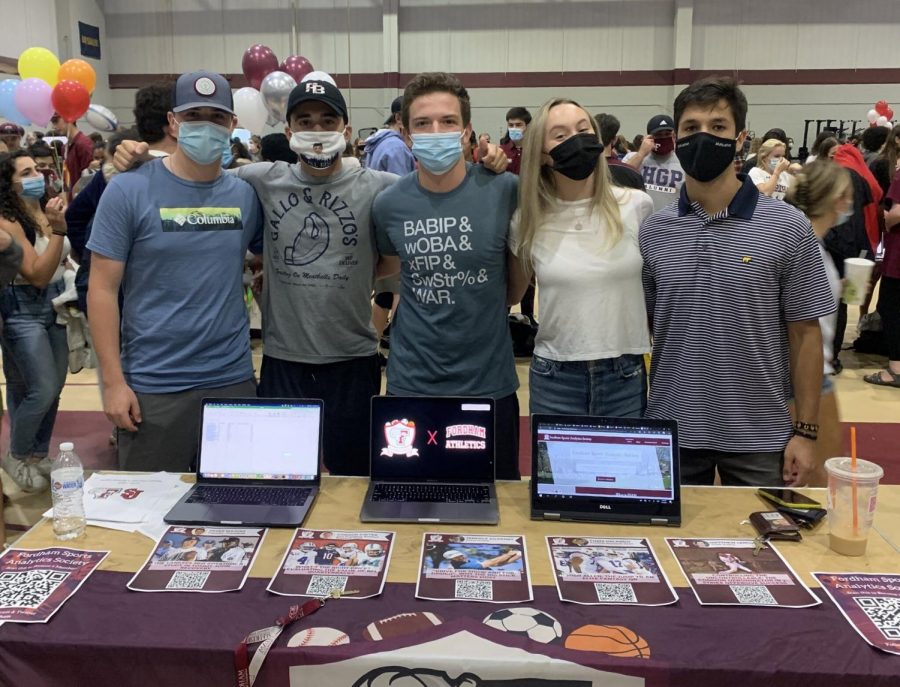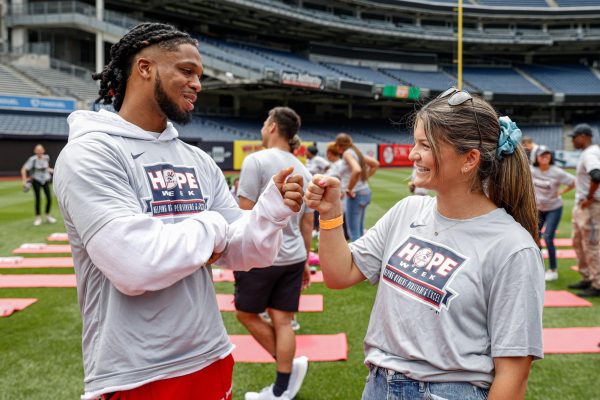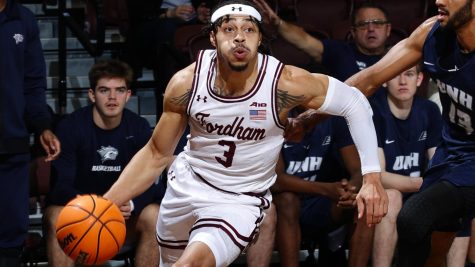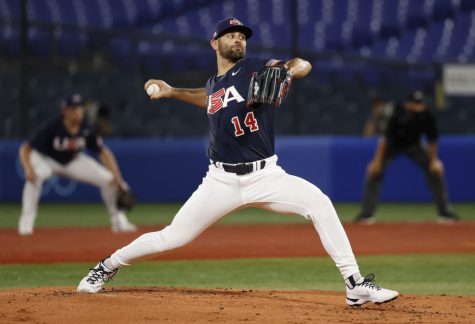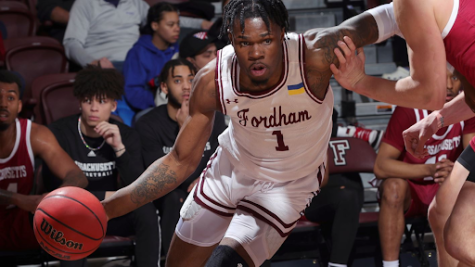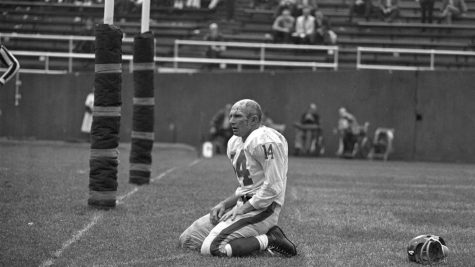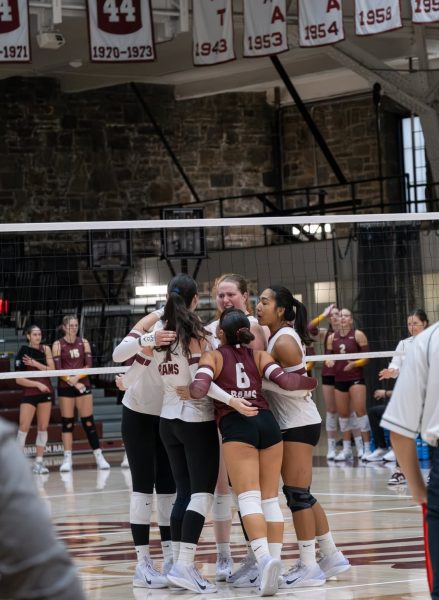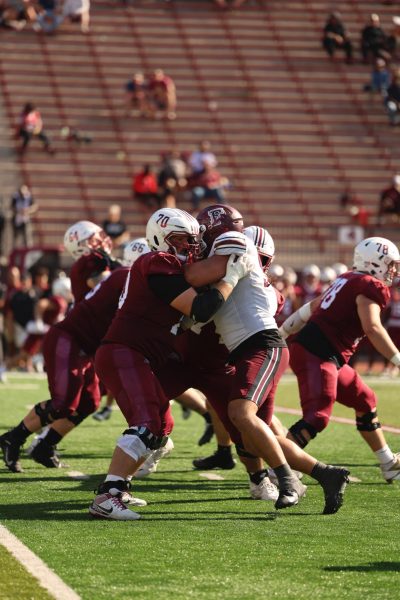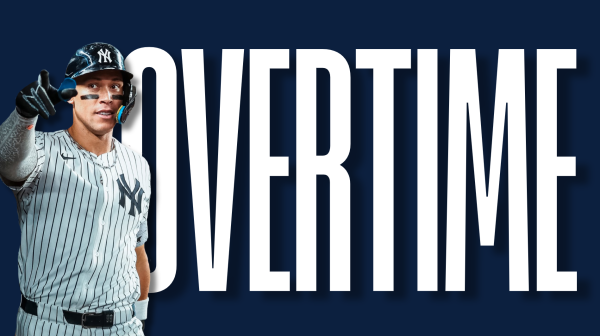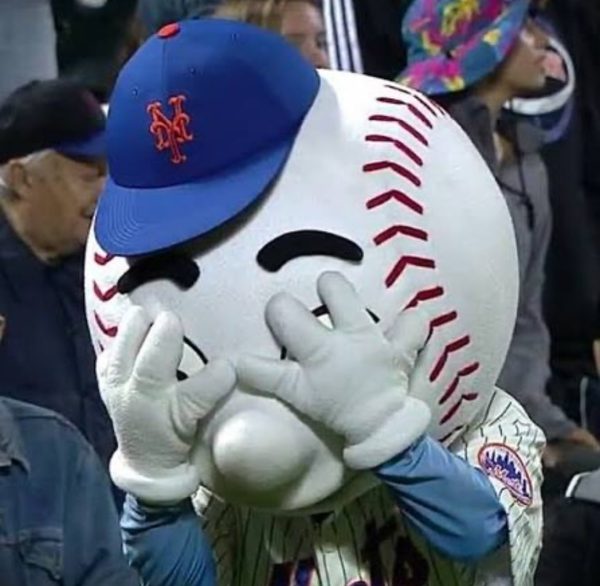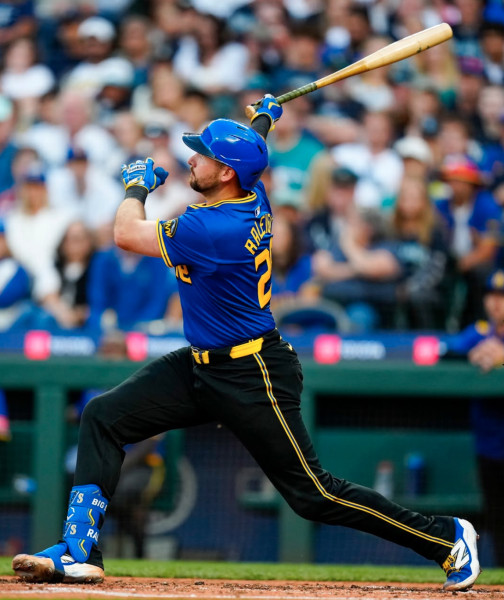Sports Analytics Society Partners with Fordham Athletics
Look at any sports competition at the moment, whether a basketball arena or an MLB baseball game. It may look the same on the surface — the sights and sounds of an ordinary event — but players have a different approach, coaches have an eye toward another facet of the game and sports are beginning to lean in an entirely new direction: analytics.
What began as a hobby, likely some data-obsessed fans crunching the numbers on their favorite players, has evolved into a fully faceted part of sports. Teams now devote entire departments to tracking and compiling statistical data to gain a competitive advantage on their opponents. This phenomenon is not just the case for professional sports, but college athletics as well. Fordham Athletics recently announced that it will be partnering with the university’s student-run Sports Analytics Society for that very purpose.
Founded nearly one year ago in October of 2020, Fordham’s Sports Analytics Society is an undergraduate club dedicated to understanding analytics and providing a home for those who appreciate this new aspect of sports.
Current President Peter Majors, Gabelli ’23, founded the club. “Interestingly, the idea for the club came from my wanting to join a similar club at Fordham that had gone defunct. The Sabermetrics (baseball analytics) club was a short-lived student organization that lost traction during the 2019 fall semester,” Majors said.
One conversation with current Vice President Connor Dwyer, Gabelli ’23, made the club a reality. Dwyer, the director of analytics for Fordham Baseball, instantly caught Majors’ attention, and sparked the club’s original focus.
“We originally intended for the club to focus only on baseball analytics, but quickly realized that we could reach a much broader audience by including all sports,” said Majors. “Finding the right people, from a club advisor to an executive board, was definitely our biggest challenge at start, but we’re extremely fortunate to have landed upon the group of people that we did.”
That group consists of Majors and Dwyer as well as a number of additional executive board members, all of which are an important part of the club’s immediate success. Matt Stanzione, Gabelli ‘23, as chief marketing officer, Sarah Dodds, Gabelli ’23, the secretary and Niko Konstantellis, GSB,’22, the treasurer. It goes without mentioning the club’s individual research heads, tasked with producing articles dedicated to in-depth analysis of professional sports, and now lead the charge in working directly with Fordham Athletics.
Officially announced on Aug. 9, the partnership will position Fordham as one of few universities in the country with access to a fully student-run analytics teams for its varsity sports. That currently includes baseball, basketball and soccer, but there is an opportunity to expand just as analytics has.
“As we continue to grow, I think our biggest goal is to develop analytics teams for as many D1 sports teams at Fordham as possible,” Dwyer said. “With analytics starting to play a bigger and bigger role in every sport, we hope to be at the forefront of analytics in college athletics.”
All it takes is a willingness to accept it. Speaking on analytics’ place, Stanzione said, “One does not need to be a mathematics or computer science wizard to comprehend what drives the modern sports front office. All that is required is an open mind and an easily digestible method of consumption of the data at hand.”
It is not just the students in the club who recognize that, but Fordham Athletics as well. The club did not offer their services. The athletics department sought out the partnership after seeing an opportunity for themselves.
“Believe it or not, we were reached out to by the Fordham Athletic Director Ed Kull and an assistant athletic director, Mr. Joe Gilfedder, via Twitter, after they saw the club’s tweet detailing all of it’s accomplishments from the 2021 Spring Semester,” said Majors. “They were just as eager to work with us as we were to work with them, and things just progressed from there.”
The club’s success in that first year was undoubtedly worth noticing. Overcoming the hurdles of establishing a club can be challenging enough, but the club did both that and thrived as well. This post from May 20 is a testament to its accomplishments, with numerous blog posts generating over 1,000 views, a total of 23 meetings, including six guest speakers ranging from Max Greenfield to Sam Miller and the award for Fordham’s New Club of the Year.
“This first year has truly been wonderful,” said Dwyer. “I don’t think any of us thought the club would grow to the point that it is today in such a short amount of time.”
All of that work has already culminated in an official partnership, one that the baseball program has already benefited from, and Kull believes the rest of the athletic department can as well. In the press release from Fordham Athletics, Kull said, “In the ever-changing landscape of college athletics, analytics plays a crucial role in the success of a program … I am thrilled to be partnering with the Fordham Sports Analytics Society to bring this technology to our Fordham Athletics programs. Our Fordham students are full of innovative ideas and technical expertise and we are excited to collaborate with them to continue the Fordham Athletics tradition.”
At the same time however, this is a partnership that is in its infancy and only just beginning, as Majors looks toward a brilliant future for both the club and Fordham Athletics along with it. “For our varsity teams, I hope that this partnership will allow them to improve the performance of their athletes and improve their chances of putting a winning product on the field,” said Majors. “For our members who chose to participate in this initiative, I hope that working with real sports data will bolster their technical skillset and land them positions within professional sports organizations and beyond.”
That student element is crucial, as the club opened up the opportunity to work with Fordham Athletics directly to its members in its press release. Time will tell how many take advantage of it, but considering the club’s success, there is reason to be confident. Confident not only in the club’s continued staying power and that of this partnership, but in analytics as a whole. “Analytics are not the future of sports, they are the present,” said Stanzione.
It is something represented across professional sports, and it will now become evident in the margins of college athletics. “All of these phenomena occurred because teams decided to make decisions based on what the data tells them … Smart teams merely make decisions that give them a greater chance to win,” Stanzione elaborated.
Both the club and Fordham see analytics as an avenue to winning and want to be at the helm of it. Stanzione sums it up nicely: “Analytics are for everyone, and we hope they continue to grow among sports fans. Because the reality is, they are not going away any time soon.”
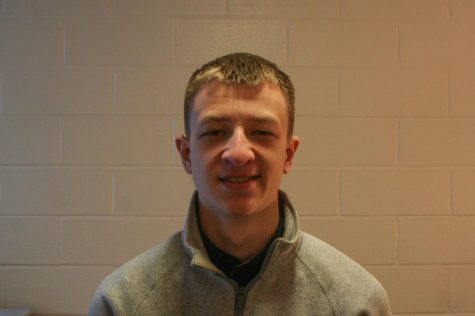
Alexander Wolz is a sophomore majoring in communication and culture. He went from writing to assisting and will now be Sports Editing. He also loves video...





































































































































































































